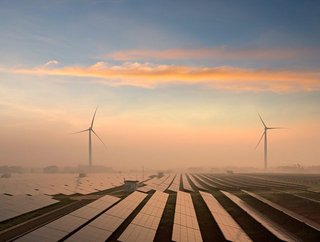Liberate economic development for renewable energy companies

With government refreshing its drive to build renewable energy capacity, it’s time for these respective companies in the industry to renew their focus on economic development outputs. Licences were first issued in 2011 and the communities around these plants are growing. With the sector being revitalised, now is the time to review lessons learnt and make some strategic decisions where necessary.
In May 2011, the Department of Energy (DoE) gazetted the Electricity Regulations on New Generation Capacity under the Electricity Regulation Act (ERA). We subsequently saw the first Independent Power Producers (IPPs) appointed. Over the past seven years, photo voltaic (PV) solar farms, wind farms, concentrated solar plants and small-scale biogas plants have been established in rural areas of South Africa to meet the goals of the National Development Plan (NDP) - namely establishing 10,000 megawatts (MWs) of additional electricity capacity by 2025 against the 2013 baseline of 44,000 MWs.
To date, three IPP Bid Windows have reached full operation phase. Last week saw the signing of the Bid Window 4 Power Purchase Agreements (PPAs) and projects are in the process of achieving financial close. In addition, the country still awaits the announcement of the Expedited Window, Bid Window 4.5, where bids have been submitted and no preferred bidders have been announced.
Much effort was put into the sustainability and transformation opportunities that these projects created, yet now that numerous renewal energy plants have been established and economic benefit has been created, yet, this leads to a number of questions such as:
- Are the levels of monitoring and evaluation of these initiatives sufficient to ensure success in the long-term?
- Are the locals that were employed during the construction of the plant still gainfully employed, and have they become more employable within other industries or found employment at different renewable energy plants?
- Have local businesses indeed benefitted from the procurement of their goods and services as part of the commitments made to the DoE? What was the impact of these big contracts?
When circumstances change, as they did for renewable energy companies in 2015 when government delayed the issuing of PPAs on Bid Window 4, business expenses get cut to the bone to ensure the organisation’s sustainability. One of the measures taken was bringing the execution of economic development plans in-house.
With expertise and focus of in-house teams diluted, so is the potential impact of these economic development investments and programmes. A pressed in-house team often does not have the time, skill or motivation to maximise outputs that specialised independent economic development teams do.
Renewable energy companies usually take 18 to thirty months (technology dependent) to get the infrastructure implemented. Post construction and commissioning revenue generation starts (Operations), which will begin to allow for inputs to the economic development programmes that assist to uplift the community. It’s vital to build sustainability into these projects from the beginning.
The elements of the economic development scorecard that need to be addressed include management control, preferential procurement, local content, job creation, socio-economic development and enterprise development. The 20-year power purchase agreement awarded to these companies by government also include clauses that compel the energy company to apply a minimum of 2,1% of their turnover to improve and uplift the community.
Independent economic development service providers can provide dedicated expert resources to not just oversee design of these plans, however, to engage and negotiate best outcomes with all stakeholders. This includes:
- Key players such as municipalities, whose IDP provide insight into the needs of the community.
- Impacted Government Departments such as Social Services, Health and Basic Education.
- Other companies and SEOs investing in similar projects where collaboration can help increase the positive impact of efforts.
- Community stakeholders – community and labour leaders.
With broad insight, the ability to collaborate, and the processes in place to drive outcomes for reporting, the returns on the socio-economic development investment are improved for the community and the investing company.
Waldo Adams is the Executive Director of Projects at Economic Development Solutions.






